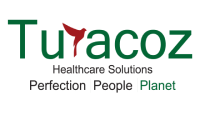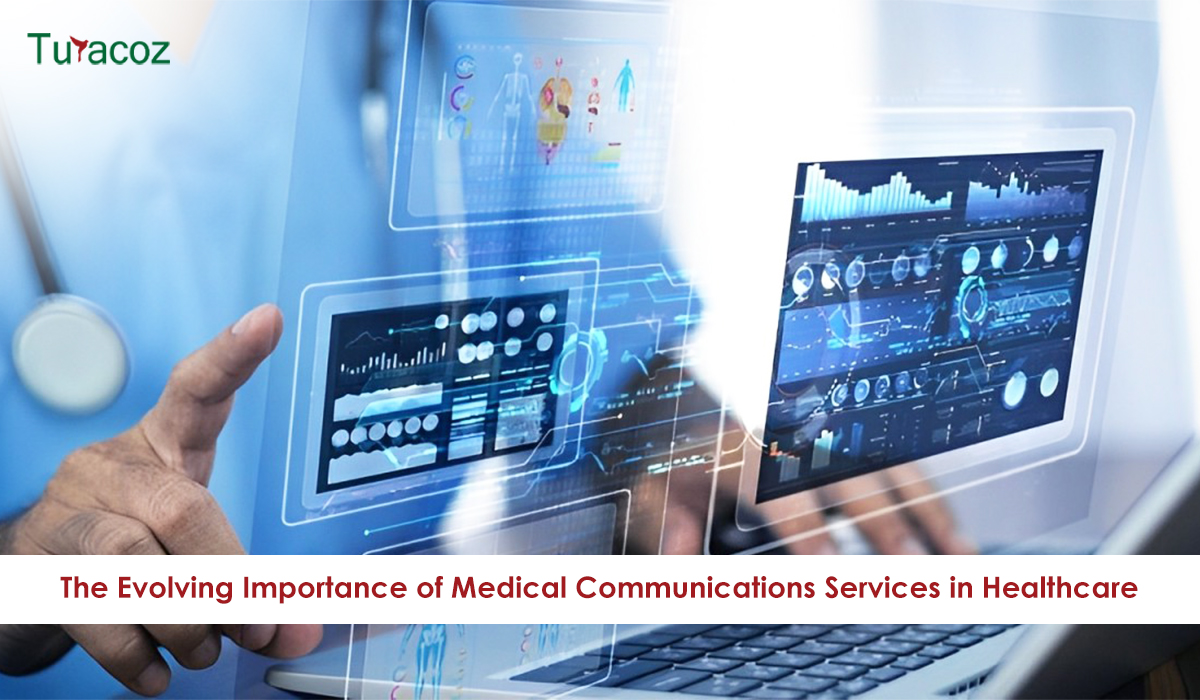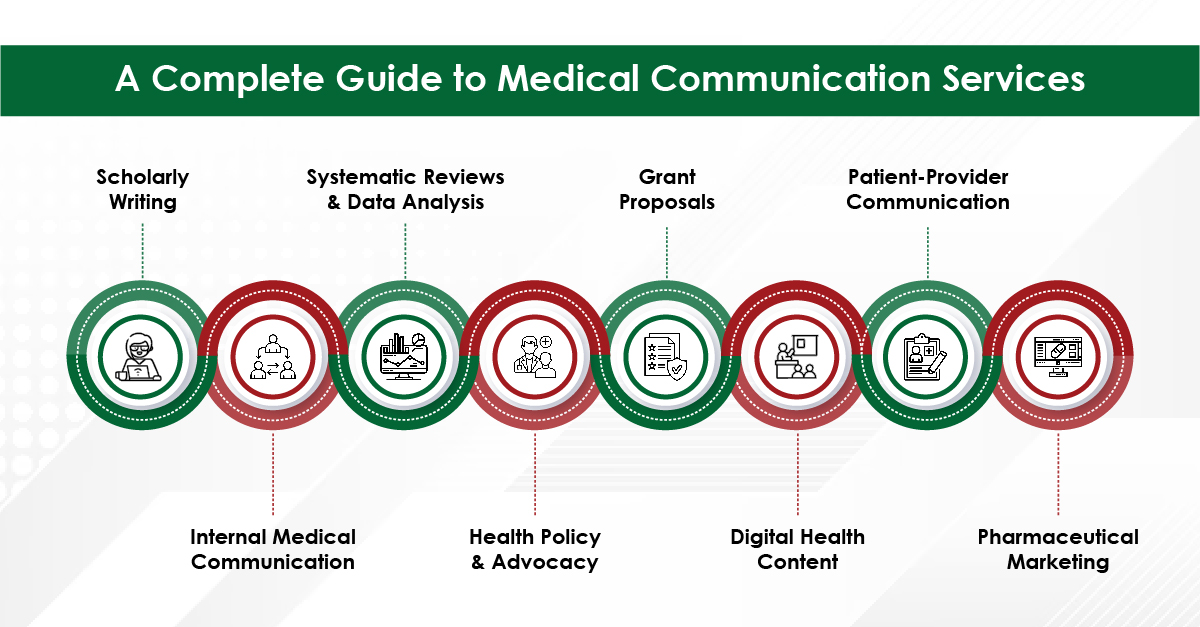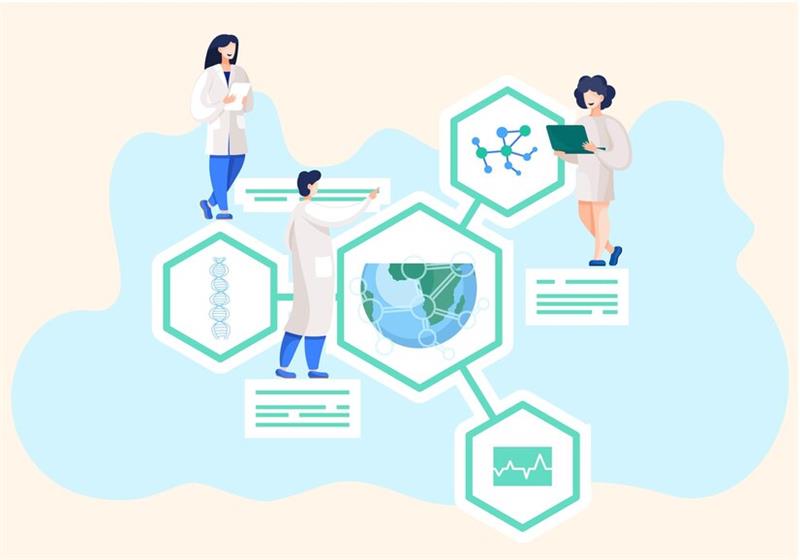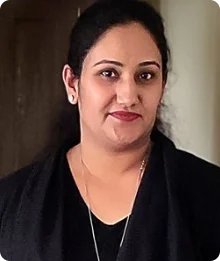In an extremely competitive market, it is a fact that many therapeutic products, medical devices, and clinical studies are never recognized by ethical committees or are removed from the market for reasons other than safety considerations. This challenging landscape makes it crucial for healthcare organizations to communicate their research, findings, and product benefits effectively. With so much at stake, medical communications in health care is a critical priority that demands careful attention and strategic planning.
Effective medical communication in healthcare bridges the gap between innovation and real-world impact, driving informed decisions and improving patient outcomes by presenting clear, accurate, and compelling scientific narratives throughout the product lifecycle and involving the stakeholders at every stage to ensure an adequate scientific dialogue about the shared knowledge. This comprehensive approach ensures that valuable medical innovations reach their intended audiences and make meaningful contributions to healthcare advancement.
What is medical communications?
Medical communication is a vast field with a variety of roles catering to a huge audience associated with organizational dynamics within medical settings such as regulatory bodies, congresses, and medical societies. This multifaceted discipline requires expertise in both scientific knowledge and communication strategies to convey complex medical information to diverse stakeholders effectively.
Medical communication ensures that treatment plans are effectively conveyed to patients in both inpatient and outpatient settings. Effective medical communication, like technical communication, and MedTech marketing, emphasizes clear, informative, and actionable content that is relevant to target audiences.
So, in short, medical communication is the intersection of clinical research, clinical science, scientific research and development, pharmaceuticals, diagnostic aids, medical devices, biotechnological corporations, patient care, business strategy, and mass media. This interconnected network of disciplines requires skilled professionals who can navigate complex scientific concepts while maintaining clarity and accuracy.
What services come under medical communications?
Medical writers are highly qualified professionals, including doctorates, scientists, and subject matter experts, well-versed in cutting-edge science, technology, and tools. They access data from platforms like PubMed, PUBSTRAT, iEnvision, and CITRIX, covering all therapy areas and every stage of drug development. These professionals combine their scientific expertise with strong communication skills to create impactful content that serves various healthcare needs.
Examples of medical communication include but are not limited to:
- Scholarly Writing– Abstract, research papers, manuscripts, review articles written by scholars of medicine and human health.
- Grant Proposals– Writing proposals for accessing grants in medical research funding, including detailed methodology and potential impact assessments
- Systematic Reviews & Data Analysis– Writing systematic reviews and narrative reviews, preparing cohort series, writing protocols for randomized controlled trials, developing pre-meeting decks based and analyzing complex data
- Health Policy & Advocacy– Health care policy and regulatory documents, as well as health-related advocacy materials for non-profit organizations
- Pharmaceutical Marketing– Pharmaceutical marketing and public relations documents including e-detailers, emailers, newsletters, pharma leave behind literature, designed to effectively communicate product benefits and safety information
- Digital Health Content- Medical and health advice articles written and presented for online audiences in the form of video bytes and whiteboard animations
- Patient-Provider Communication- healthcare provider communication materials ranging from in-person conversations that doctors and nurses have with patients and their families to video chats, emails, e-detailing aids, e-post messages, and medical/treatment standard operating procedures
- Internal Medical Communication-Group and organizational communication within medical settings, including conversations and medical documentation shared between health care providers, and between administrative leadership including pre and post webinar materials and follow-up resources
Why is medical communication important?
Medical practitioners possess a wealth of knowledge and expertise in their respective fields. However, these skilled and experienced professionals do often need specialized assistance when it comes to publishing their years of valuable work in reputable journals. The journey from research to publication involves multiple complex steps that demand dedicated support and guidance.
The process begins with the crucial need for someone to meticulously plan meeting agendas, craft well-structured abstracts, and develop comprehensive manuscripts. A significant component involves conducting thorough systematic literature reviews, which requires extensive database searches, critical analysis of existing research, and systematic documentation of findings.
Not just this but performing detailed meta-analyses to effectively position the drug or medical products in today’s highly competitive market is an intricate task that typically spans 12 months or more to yield meaningful results accepted by the medical congresses and the ethical committees.
What is the role of a medical communication agency?
Agencies working in medical communications specialize in creating custom healthcare content. They have experts who excel in creating content tailored for every stage of product development, from regulatory approval to final omnichannel marketing, ensuring it effectively reaches the target audience, whether healthcare professionals or patients.
Their services portfolio includes strategic consultation for drug development, brand positioning, innovative digital solutions, and creative material design. They excel in developing impactful messaging campaigns enhanced with informative infographics and provide extensive medical liaising services within specified timeframes. These agencies effectively manage all aspects of medical communication, ensuring everything is meticulously organized and delivered well before deadlines, allowing healthcare professionals to focus on their core responsibilities while maintaining confidence in their communication strategies.
